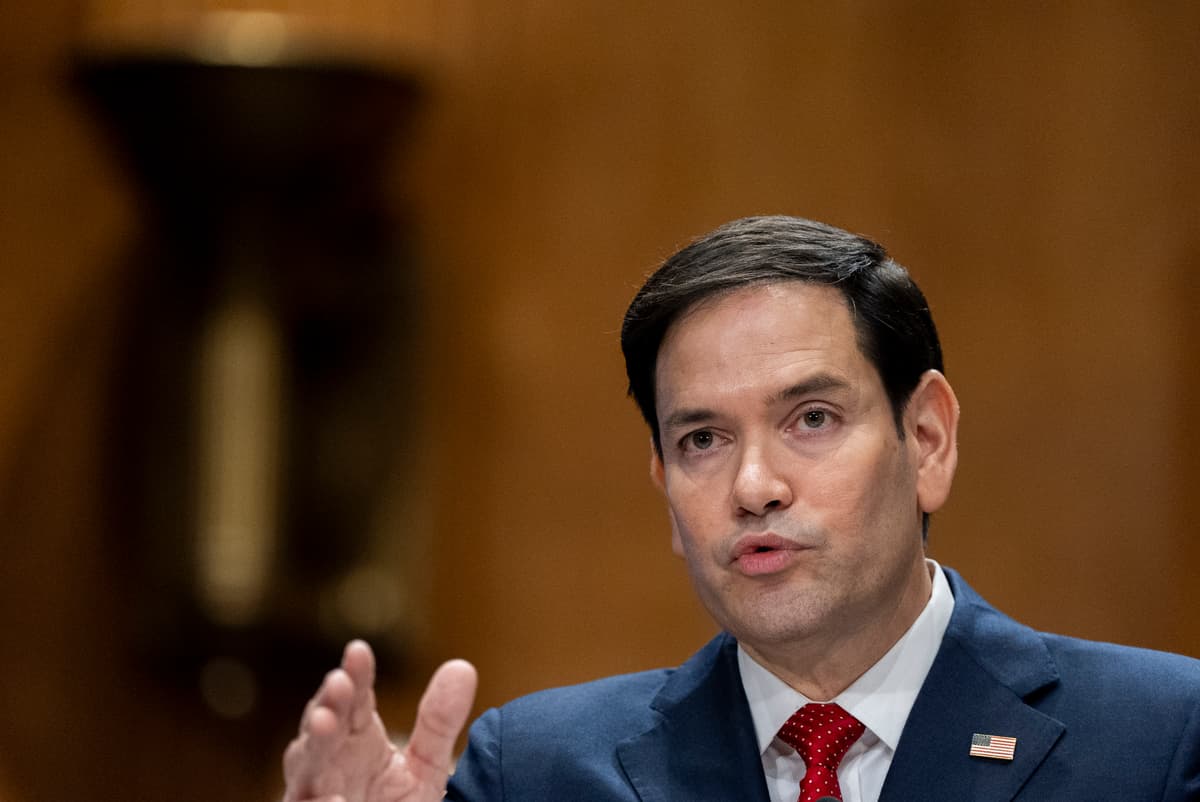Will Trump Call Biden’s Bluff on Cuba?
Senator Rubio, at his confirmation hearing for secretary of state, makes it clear that he knows what the Castroite communists are up to.

“Without a question,” the nominee to be Secretary of State, Senator Rubio, said yesterday, when asked if the Cuban dictatorship from which his parents fled belongs on the list of terrorist states. The question was posed by a fellow Cuban descendant, Senator Cruz, and Mr. Rubio didn’t leave the context in the air. “Nothing that the Biden administration has agreed to in the last 12 or 18 hours,” he said, “binds the next administration, which starts on Monday.”
The lifeline that was tossed to the Castroite regime was but one in a flurry of last-minute executive orders issued by President Biden before leaving office. The White House announced it would remove Cuba from the list of terror-backing states. President-elect Trump’s vowed to issue 100 EOs on day one. Many of them will simply cancel the outgoing president’s late writs. Cuba, therefore, will likely be re-listed as a supporter of terror.
Rightly so. Cuba, Mr. Rubio made clear, backs a Colombia-based terrorist group, the FARC. It has ties to the arch-terrorists at Tehran. It maintains “friendly” relations with Hamas and Hezbollah. “There is zero doubt in my mind that they meet all the qualifications for being a state sponsor of terrorism,” the Floridan said. He also mentioned Havana’s ties to Venezuela’s President, Nicolás Maduro, who was inaugurated Friday.
To top a stolen election, Mr. Maduro followed up his ill-gained resumption of power by threatening to invade American territory. “The liberty of Puerto Rico is pending, and we will achieve it with Brazilian troops,” Mr. Maduro said Sunday. In reality, Cuban soldiers for hire are more likely than Brazilian ones to abet such an adventure. Governor González-Colón of Puerto Rico pleaded with Trump to defend against an “open threat” to America.
Mr. Biden’s explanation for removing Havana from a list on which it clearly belongs is that the regime would release more than 500 political prisoners out of some 950 in Cuban dungeons. That is a noble idea, even as the regime is likely to rearrest at least some of those it releases. Yet is that a good deal? Is it worth giving the heirs of Castro access to American banks, where they can stash ill-gained riches? Is it even legal, as the White House seems to argue?.
Mr. Biden notified Congress that he is issuing a “waiver for Title III of the Helms-Burton Act, otherwise known as the Libertad Act, for a period of six months,” Press Secretary Karine Jean-Pierre said Tuesday. Can he? According to the 1996 act, the president can suspend sanctions on Cuba upon submitting to Congress a report that a “transition government in Cuba is in power.” No such report could pass the laugh test.
Far from a transitional figure, the current Havana strong man, Miguel Díaz-Canel, is an avid practitioner of the Castro regime’s tenets. The Fidel and Raul descendants are reportedly amassing wealth while Cuban citizens line up for government-supplied bits of rice and beans. The peso is worth less than the paper it’s printed on. As a result of power mismanagement, homes get electricity only a few hours a day. Blackouts are the rule.
Helms-Burton specifies conditions for a presidential waiver of sanctions. Those include legalizing “all political activity,” releasing “all political prisoners,” and “organizing free and fair elections.” President Obama tried to evade these hurdles under the theory that ending American sanctions would lead Cuba to open up. It didn’t. Mr. Biden’s gambit is unlikely to do better. Good luck to Mr. Rubio and President-elect Trump in reversing Biden on this head.

